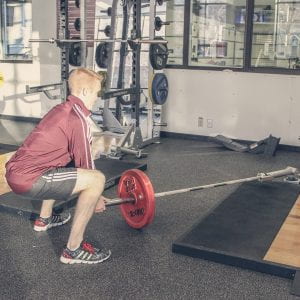One of the top reasons individuals work out is to lose weight. You start or increase your visits to the gym and begin closely watching what you eat regularly for a couple of weeks and have finally built up the courage to step on the dreaded scale. You open your eyes and see that you’ve haven’t lost any weight at all or even gained a  pound or two. Please stay calm! Don’t throw your scale! Your workouts haven’t gone to waste, in fact it could be an indicator that your workouts are working exactly the way they should be. What is happening in your body that will cause this unexpected increase in weight?
pound or two. Please stay calm! Don’t throw your scale! Your workouts haven’t gone to waste, in fact it could be an indicator that your workouts are working exactly the way they should be. What is happening in your body that will cause this unexpected increase in weight?
Fuel Stores Increases
As you stress your muscles through working out, your body uses up glycogen (fancy name for sugar in the muscles) as fuel to allow the muscles to work the way they should. As your muscles work harder they begin to deplete their glycogen (fuel) stores. As your fuel stores get low, your body compensates by making your fuel storage larger when you refuel.
When you eat, your body will try to refuel those depleted muscles. The muscles may become larger to store more fuel and resist fatigue, since the muscles can now store more fuel than they did previously.
By storing more fuel your muscles will be able to last longer meaning you can swim, run, cycle or lift longer or do more repetitions and/or heavier weights. This will lead to additional increases in strength and endurance.
Water Retention
In additional to increasing the amount of fuel in your muscles, your body will also adapt to your training by storing more water in your muscles. As you workout you sweat and become thirsty and likely without even noticing it you are consuming more water than you did before you were working out.
As your body brings in more sugar for fuel, it pulls in water along with the sugar into the muscles. This water is then used to help break down and use the energy stored in the sugar to make your muscles work.
Just remember when you gain an extra pound or two early on in your training it is just added energy and water that your muscles need. It is completely normal to gain a pound or two and should lead to excitement as it is a strong indicator that you are getting stronger and improving your fitness. Generally, these larger less predictable fluctuations in body weight will occur in the first six to eight weeks of training and after this point, your body will reach a point of equilibrium. Once that happens, you will see more consistent results that are in line with your diet and exercise.
Visit the Sport and Wellness website for our personal trainer bios and information on fitness program designs and individual and group personal training.
by Kyle Babiuk
Kyle Babiuk is a Bachelor of Kinesiology Graduate and is certified with the Canadian Society for Exercise Physiologists as a Certified Exercise Physiologist Exercise is Medicine. He specializes in movement analysis, chronic disease management through exercise and strength programming. He’s worked with athletes, individuals with chronic diseases, along with many other individuals trying to achieve their health and fitness goals.


